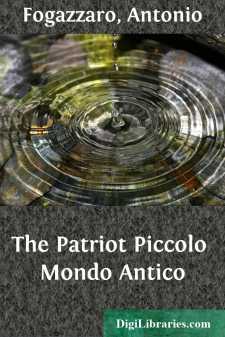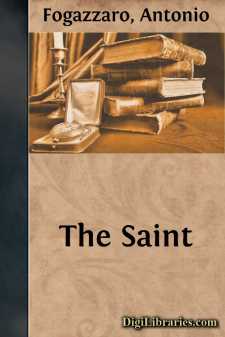Categories
- Antiques & Collectibles 13
- Architecture 36
- Art 48
- Bibles 22
- Biography & Autobiography 813
- Body, Mind & Spirit 142
- Business & Economics 28
- Children's Books 17
- Children's Fiction 14
- Computers 4
- Cooking 94
- Crafts & Hobbies 4
- Drama 346
- Education 46
- Family & Relationships 57
- Fiction 11829
- Games 19
- Gardening 17
- Health & Fitness 34
- History 1377
- House & Home 1
- Humor 147
- Juvenile Fiction 1873
- Juvenile Nonfiction 202
- Language Arts & Disciplines 88
- Law 16
- Literary Collections 686
- Literary Criticism 179
- Mathematics 13
- Medical 41
- Music 40
- Nature 179
- Non-Classifiable 1768
- Performing Arts 7
- Periodicals 1453
- Philosophy 64
- Photography 2
- Poetry 896
- Political Science 203
- Psychology 42
- Reference 154
- Religion 513
- Science 126
- Self-Help 84
- Social Science 81
- Sports & Recreation 34
- Study Aids 3
- Technology & Engineering 59
- Transportation 23
- Travel 463
- True Crime 29
The Patriot Piccolo Mondo Antico
Description:
Excerpt
INTRODUCTION
The Patriot (Piccolo Mondo Antico) was published in Milan in 1896, and has reached its forty-fourth edition, which is in itself sufficient proof of its popularity; for Italians do not purchase books largely, and one volume will often make the tour of a town, coming out of the campaign in rags and a newspaper cover.
Although The Patriot is not an historical novel in the true sense of the term, it certainly throws a wonderful side-light on those ten years of "deadly cold and awful silence," a silence broken only from time to time by the cries of the martyrs of Mantua, by the noise of inward strife in the Papal States, and by the weeping of mothers who saw their sons disappear behind the clanging doors of Austrian fortresses. These ten years stretched drearily from the disastrous field of Novara to the glorious days of Magenta, Solferino and San Martino (1849–59).
Antonio Fogazzaro, born in Vicenza in 1842, was a child when the battle of Novara was fought and lost; but when the French drove the Austrians from the bloody field of Magenta, he, a youth of seventeen, was ready to be fired with patriotic enthusiasm.
During those years, there was little the patriots could do save to feed the fire of hatred against the foreign oppressors, and prepare, as best they could, in secret and in constant danger of death, for the moment when Piedmont should once more give the signal of revolt.
In the night that succeeded the battle of Novara, King Carlo Alberto, who had risked all for the freedom of the rest of Italy—for it must be remembered that his own kingdom of Sardinia was independent of Austria—discouraged, mortified, and impoverished, abdicated in favour of his son, Victor Emmanuel. It was no longer possible to continue hostilities, and Carlo Alberto hoped that his son, whose wife, Maria Adelaide, was the daughter of an Austrian grand-duke, might obtain more favourable conditions from Austria for his unhappy country. On the following day the young King and Field-Marshal Radetzky met, and a peace was signed, the conditions of which Victor Emmanuel found great difficulty in persuading his parliament to ratify. But in the end Piedmont paid Austria an indemnity of seventy-five million francs.
Victor Emmanuel had not, however, abandoned the idea of United Italy, and could say with Massimo D'Azeglio: We will begin over again, and do better! Count Camillo Benso di Cavour, one of the greatest statesmen of modern times, stood by the King from the first. They immediately turned their attention towards bettering the condition of their impoverished country, and soon succeeded in rendering the little capital, Turin, one of the brightest and most prosperous cities of the Continent. The patriots, the best men in Italy, flocked to Turin from all those states where Austria or her tools held sway. The Piedmontese government granted subsidies to some of these refugees, and found employment for others, receiving all with open arms.
Meanwhile, Mazzini and Garibaldi were working, sometimes at home, sometimes in exile, while in Mantua brave patriots, among them several saintly priests, were suffering torture and death at the hands of the Austrians. The records of their trials revealed such palpable and flagrant violation of all justice, all law, that when the Austrians were at last expelled from Mantua, they were careful to remove these to Vienna, where they are still preserved. The aged mother of one of the priests who suffered execution appealed to the young Empress Elisabeth, begging that her son's body might be restored to her, and receive burial in consecrated ground. But Elisabeth was deaf to the unhappy woman's prayers. During the long and desolate years of her own affliction, how often must the unfortunate Empress have thought of the tears of blood the mothers of Italy had shed! It was Field-Marshal Haynau of inglorious memory, he who for his cruelties in that city had been dubbed the "hyena of Brescia," who tortured these martyrs of Mantua and signed their death-warrants.
All these things were happening during those ten years of heavy silence when Fogazzaro was a child. We can fancy how eagerly he listened to the accounts of these horrors, and to the long and animated discussions his father (Franco Maironi of The Patriot) and his uncle (Uncle Piero) held with the brilliant company that assembled at Casa Fogazzaro....



